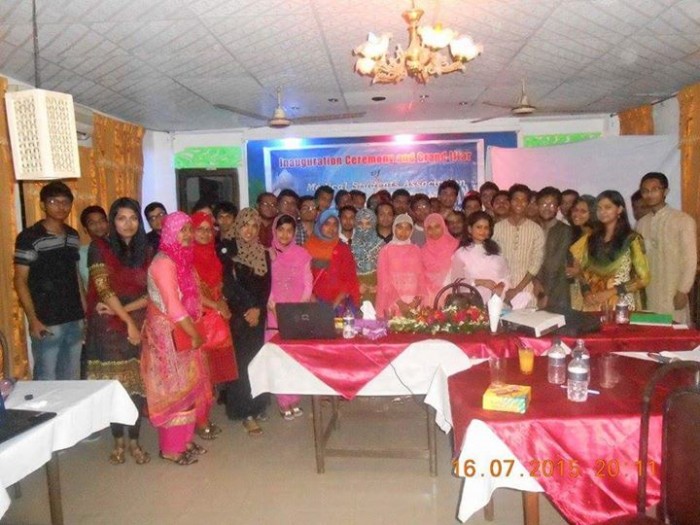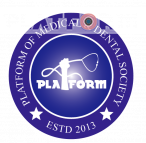I have decided to write a new blogpost- series named “Budding researchers.” In this series of writing, I will try to motivate and nurture the wannabe young research minds among the medical students and young doctors of Bangladesh. And without any doubt, “Platform” is the best platform to do so!
So, today I’m going to talk about why you shouldn’t ignore medical research!
1. For getting promoted in the clinical career
Mostly when we talk about the medical research, people think it’s very important for being a successful public health professional or a medical researcher only! However, research is also very important as you proceed in your clinical career ladder. As many of you already know that, you need certain amount of publications to be promoted in your clinical career i.e. assistant professor to associate professor and so on.
2. For clinical career in abroad
Even though we talk a lot against ‘brain drain’, many of us really want to settle in abroad. Why they are choosing it – that’s whole another debate; but importantly, for them it’s the destination, the dream! If you are in this group, I can guarantee you that some research experience will do no harm to you rather it will pave your paths in numerous ways!
Your research experience and publications will make you a strong candidate for the clinical jobs abroad as they value research immensely.
I was surprised when one of my classmates recently accepted a PhD offer in reproductive medicine in University of Nottingham, UK who was and will be always a hardcore clinician! “Have to do it dost…otherwise cannot be in a consultant position if any IVF (In vitro fertilization) center” – a comment from her Facebook wall made her intention very clear!
3. For getting scholarship and fellowship offers
For those who aspires to pursue PhD (be in public health or epidemiology or clinical sciences!) in future, research plays vital role for getting scholarships and/or fellowships. Most of the university admission committees look for a complete package – good results, research experiences (with or without having publications) and co-curricular & extra-curricular activities. So, don’t hesitate! Your baby steps in research field might become a giant step for your future endeavors.
4. Helps in getting residency placement in USMLE
Of course you need to pass the USMLE exams! The research experience will only synergize your case to get into a residency program.
To explain this specific point, I just want to share two case stories –
First one is an Indian guy whom I have known through medical students’ conferences held in India. He completed his MBBS from Kasturba Medical College, India in 2013 and now working as a resident in pediatrics in Cleveland clinic, Ohio in USA. I have been following his research works since 2012 and he had in total 5 publications (if I remember correctly!) in different Indian journals. Those publications are not top-quality research as he did them being a nascent researcher; but they serve him very well!
The second person I am going to give example is my classmate from Karolinska Institutet who is studying epidemiology with me. He is a medical doctor from Ethiopia. As I learnt the fact that he has already completed the first two parts in USLME, I instantaneously asked him “Why then you are studying epidemiology here?” He explained to me that through this masters in epidemiology he will acquire research knowledge and skills as well as research experiences (hopefully publications too!) through master thesis.
5. Earning international reputation
To be very honest, how many patients a doctor treats every day in his/her chamber, is not an indicator for his global reputation. Only quality research can earn you global reputation and respect among the medical community.
I believe most of us here know about Professor MA Faiz sir who is a renowned internist and medical researcher of our country. He is worldwide reputed for his researches on snake-bite and a pride for our country’s medical arena. He exemplified the point that one can be a very good researcher as well as wonderful clinical at the same time!
6. Attending international conferences
Okay, research has its own perks and this point is one of them. For presenting your research findings you can attend many international conferences worldwide. It’s like “killing two birds with one stone!” You can gather and share knowledge from attending such conferences and visit many places!
I am very pleased to see that many young medical students are now attending international conferences in different countries and upholding the flag of Bangladesh there. Remember! One day you can be one of them!
7. Creating new knowledge
By treating the patients the doctors are implementing their hard-earned knowledge in the service of humanity. But it’s also important to create new knowledge which will help the medical science for better treatment.
For example, we all know the cut-off points for BMI calculations and these cut-offs were adopted from researches on white populations. To be very precise about the cut-offs we need studies on our population. Yes, some Chinese and Japanese researchers have been doing research on these cut-offs for Asian population and I believe we need more research on South Asian populations [Come on! We are not alike the Japanese or Chinese people!] That goes true also for hypertension management goals and many more clinical issues.
This is surely not a complete list describing the importance of research in your career. Take a baby step towards medical research and sky will be your only limit!!!
N.B.: The next blog posts in this series will be published fortnightly.
For further queries, please don’t hesitate to contact me on Facebook or visit my personal blog www.epiinside.wordpress.com

